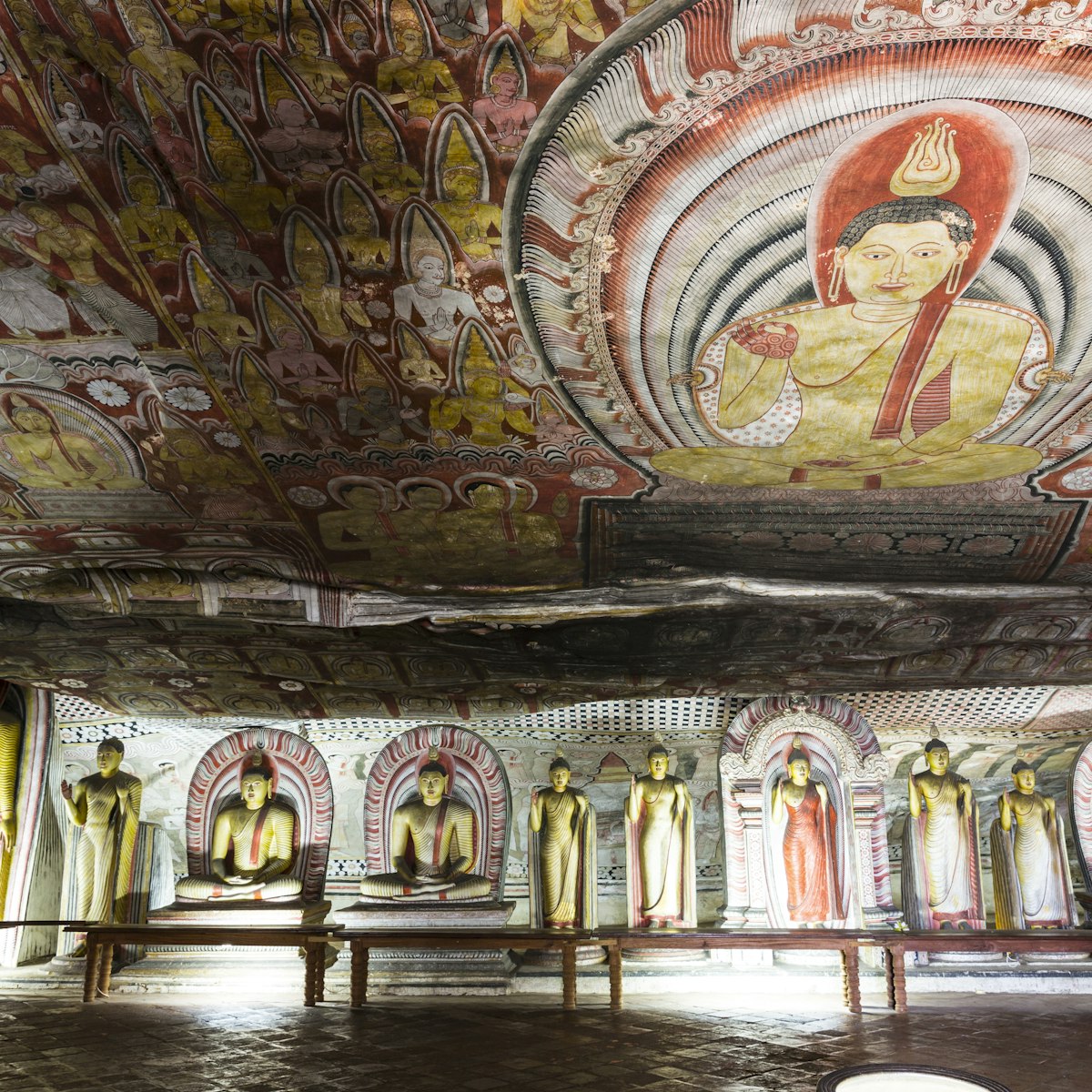Beyond the Sigiriya frescoes, the path clings to the sheer side of the rock and is protected on the outside by a 3m-high wall. This wall (not the actual rock face) was coated with a smooth glaze upon which visitors felt impelled to note their impressions of the women in the gallery above – or so says local legend. The graffiti was inscribed between the 6th and 14th centuries.
You’ll have to look hard beyond the modern mess to see the ancient messages. One typical graffito reads, ‘The ladies who wear golden chains on their breasts beckon me. As I have seen the resplendent ladies, heaven appears to me as not good.’ Another reads, ‘A deer-eyed young woman of the mountainside arouses anger in my mind. In her hand she had taken a string of pearls and in her looks she has assumed rivalry with us.’
The graffiti is of great interest to scholars because they show the development of the Sinhala language and script, and because they demonstrate an age-old appreciation of art and beauty. Signs warn modern visitors not to add their own inscriptions.





